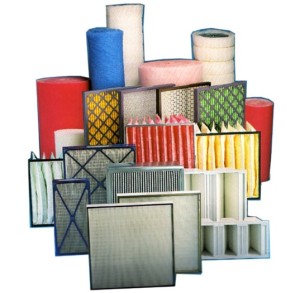 The Environmental Protection Agency in one of its studies concluded that indoor air can be 100 times more polluted compared to outdoor air. What this means is that measures should be taken to purify indoor air. To enhance the indoor air quality, you have to equip your air conditioning unit with air filters and changing them on a regular basis depending on their state of use.
The Environmental Protection Agency in one of its studies concluded that indoor air can be 100 times more polluted compared to outdoor air. What this means is that measures should be taken to purify indoor air. To enhance the indoor air quality, you have to equip your air conditioning unit with air filters and changing them on a regular basis depending on their state of use.
Blocked or dirty filters can easily make your ac unit to age faster by making it work harder to achieve the same level of performance. When doing the filter installation and replacements, you have to be careful about the size and type you use. The right filter will enable your system to work in a more efficient manner, filtering particles at optimal levels and consuming less power. However, before you change your air filters, you have to be sure that they are truly due for replacement. Some of the signs to look for include:
Changes in Filter Efficiency
With time and usage, filters become inefficient. Instead of trapping the air particles, these filters can yield to the air pressure and allow the particles to be detached. The detached particles then accompany the air stream finding their way into the indoor environment. Granular particles have a likelihood of passing through inefficient filters compared to fibrous particles.
Permissible Air Flow Variations in the AC unit
When the air velocity in the laminar flow installation can no longer be maintained or has dropped below the required standard, the filters have to be changed.
Bacteriological Reasons
The filters can at times be replaced at certain pre-determined intervals to prevent bacteria and other microbes from building up. Here, the onus is on you to determine when the change should be effected.
Appropriate Window Periods
Filters can also be changed during certain times of reduced activity. For instance the replacement of filters can be timed at period when the plant is on temporal shut down or when there are minimal production disturbances. You can also change them during holidays.
The Types of Air Conditioning Filters
There are different options when it comes to air filters in the market today. To determine the right fit for you, you need to consult an AC expert who will advise you accordingly. There are four main types of filters as discussed below:
Fiberglass AC Filters
The Fiberglass AC filters are categorized as the least expensive option. They have an adhesive coating which functions as the surface where dirt and dust particles are trapped. However, small particles tend to find their way through making this filter a little bit ineffective. These filters do not require cleaning and their lifespan is about a month. When it becomes dirty and laden with dust, it is discarded and another one installed.
Pleated Air Conditioning Filters
This filter is considered a higher grade version of the Fiberglass AC filters. It consists of a highly woven fabric with pleats that gives it an extra layer protection. It has 50 percent efficiency in removing air particles. The pleated surface helps in providing a large and extensive area for trapping the air particles. These filters are slightly expensive and their lifespan is around 3 months.
Electrostatic Filters
Unlike the other filters which are mechanical, the Electrostatic Filters make use of electricity charges to trap dust, dirt and other allergens. These filters can also remove odors caused by pets, smoking and even mold spores. They generally filter minute airborne particles. You can get them at various thicknesses and filtration levels and are usually cleaned twice per year. Electrostatic Filters can be fitted in air duct systems and still work efficiently.
HEPA Filters
HEPA is an acronym for High Efficiency Particulate Arrestance. HEPA filters come in two main types; the absolute or true HEPA filters and HEPA type or HEPA like filters. Absolute HEPA filters have a capacity of removing up to 99.97 percent of air particles measuring 0.3 microns and above. HEPA type on the other hand can remove between 80 and 90 percent of particles of up to 1 micron in size. These are considered the most efficient filters because they trap virtually all types of particles from pet dander to pollen, smoke and mold. Because of their high cost, HEPA filters are recommended for use in homes where the residents are suffering from respiratory ailments.
Whatever the filter you choose, it must be the appropriate in size, professionally installed and inspected regularly for cleaning and changing. In this way, it will give you maximum protection and utility.
How To Change Your Air Conditioner Air Filter?
;

